Which of most reactive towards nucleophilic aromatic substitution.
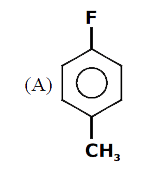
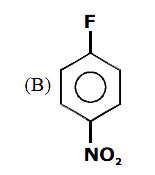
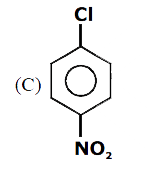
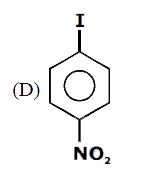
The correct Answer is:B
To determine which compound is most reactive towards nucleophilic aromatic substitution, we need to analyze the effect of substituents on the aromatic ring and how they influence the electron density. Here’s a step-by-step solution:
Step 1: Understand Nucleophilic Aromatic Substitution
Nucleophilic aromatic substitution involves the addition of a nucleophile to an aromatic ring, followed by the departure of a leaving group. The reactivity of the aromatic compound depends on the electron density of the ring and the nature of the substituents.
Hint: Remember that nucleophiles are electron-rich species and will attack areas of low electron density on the aromatic ring.
Step 2: Identify the Substituents
Let’s consider the four options provided. Typically, these options will include different substituents such as halogens (like fluorine, chlorine), alkyl groups (like methyl), and electron-withdrawing groups (like nitro).
Hint: Focus on how each substituent affects the electron density of the aromatic ring.
Step 3: Analyze Electron-Withdrawing and Electron-Donating Effects
- Electron-Withdrawing Groups (EWGs) like nitro (-NO2) decrease the electron density on the aromatic ring, making it more susceptible to nucleophilic attack.
- Electron-Donating Groups (EDGs) like alkyl groups (e.g., -CH3) increase the electron density, making the ring less reactive towards nucleophiles.
Hint: Identify which substituents are EWGs and which are EDGs in your options.
Step 4: Determine the Most Reactive Compound
1. For a compound with a halogen (like fluorine): The bond between carbon and fluorine is highly polar due to fluorine's high electronegativity, making it a good leaving group. However, the presence of electron-donating groups can reduce reactivity.
2. For compounds with nitro groups: The nitro group is a strong electron-withdrawing group, which significantly decreases electron density on the ring, enhancing reactivity towards nucleophiles.
Hint: Compare the electron density of the aromatic rings in each option to see which one is most affected by EWGs.
Step 5: Conclusion
After analyzing the effects of substituents:
- The compound with the nitro group (-NO2) will be more reactive towards nucleophilic aromatic substitution compared to those with electron-donating groups or less polar leaving groups.
- Among the options, the compound with the nitro group and a good leaving group (like iodine) will be the most reactive.
Final Answer: The compound with the nitro group is the most reactive towards nucleophilic aromatic substitution.
Nucleophilic aromatic substitution involves the addition of a nucleophile to an aromatic ring, followed by the departure of a leaving group. The reactivity of the aromatic compound depends on the electron density of the ring and the nature of the substituents.
Let’s consider the four options provided. Typically, these options will include different substituents such as halogens (like fluorine, chlorine), alkyl groups (like methyl), and electron-withdrawing groups (like nitro).
- Electron-Withdrawing Groups (EWGs) like nitro (-NO2) decrease the electron density on the aromatic ring, making it more susceptible to nucleophilic attack.
- Electron-Donating Groups (EDGs) like alkyl groups (e.g., -CH3) increase the electron density, making the ring less reactive towards nucleophiles.
1. For a compound with a halogen (like fluorine): The bond between carbon and fluorine is highly polar due to fluorine's high electronegativity, making it a good leaving group. However, the presence of electron-donating groups can reduce reactivity.
2. For compounds with nitro groups: The nitro group is a strong electron-withdrawing group, which significantly decreases electron density on the ring, enhancing reactivity towards nucleophiles.
After analyzing the effects of substituents:
- The compound with the nitro group (-NO2) will be more reactive towards nucleophilic aromatic substitution compared to those with electron-donating groups or less polar leaving groups.
- Among the options, the compound with the nitro group and a good leaving group (like iodine) will be the most reactive.
Topper's Solved these Questions
- BOOK - MOTIONCHAPTER - AROMATIC COMPOUNDEXERCISE - Exercise - 317videos
AROMATIC COMPOUND
- BOOK - MOTIONCHAPTER - AROMATIC COMPOUNDEXERCISE - Exercise - 4 | Level-I13videos
AROMATIC COMPOUND
- BOOK - MOTIONCHAPTER - AROMATIC COMPOUNDEXERCISE - Exercise - 2 (Level-I)47videos
AROMATIC COMPOUND
- BOOK - MOTIONCHAPTER - ALKYI HALIDEEXERCISE - Exercise - 4 | Level-II8videos
ALKYI HALIDE
- BOOK - MOTIONCHAPTER - ATOMIC STRUCTURE EXERCISE - EXERCISE-4 (LEVEL-II)18videos
ATOMIC STRUCTURE
Similar Questions
Knowledge Check
- Question 1 - Select One
Which of the following 2-halo nitrobenzene is most reactive towards nucleophilic aromatic substitution ?
A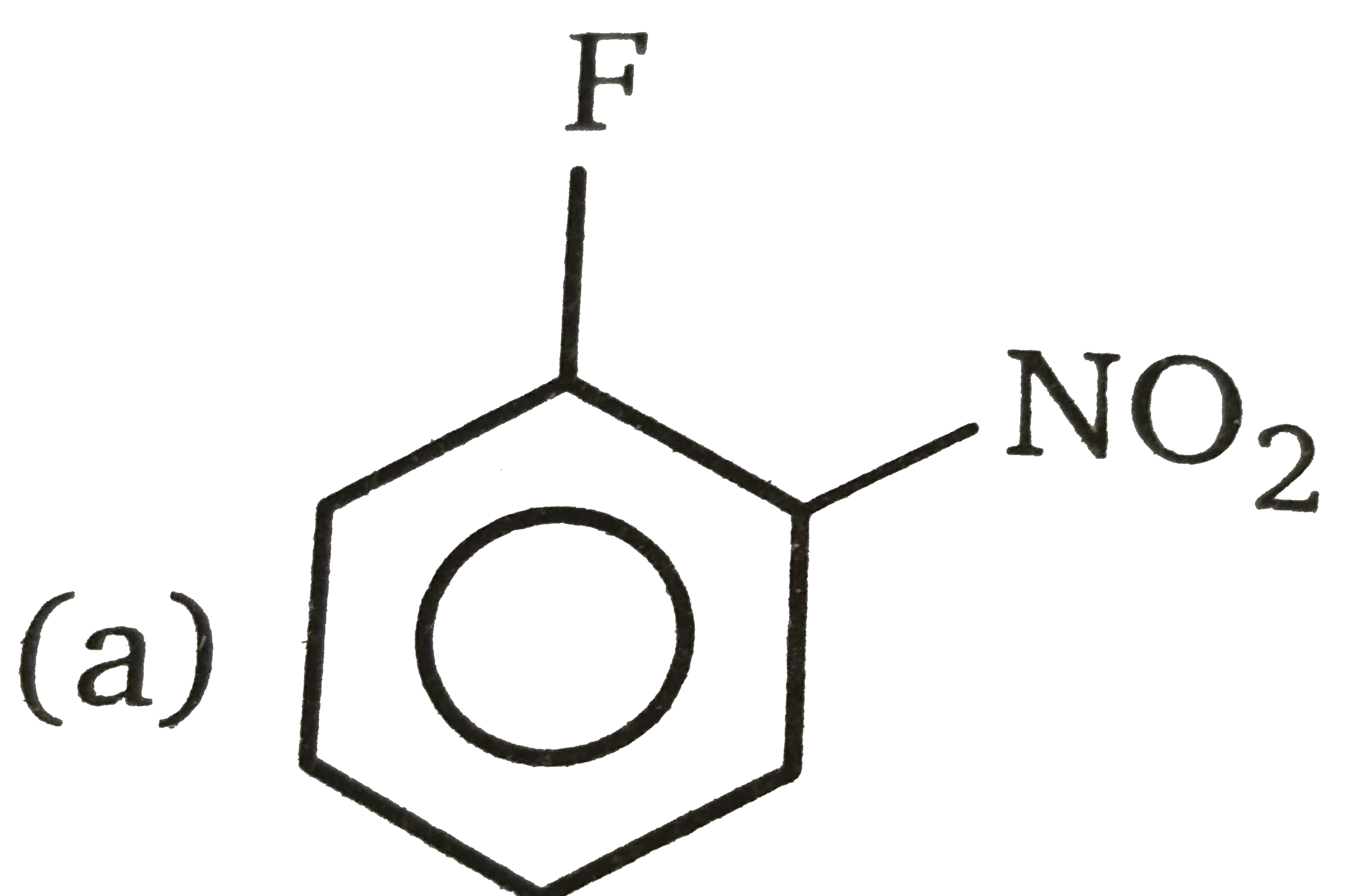 B
B C
C D
D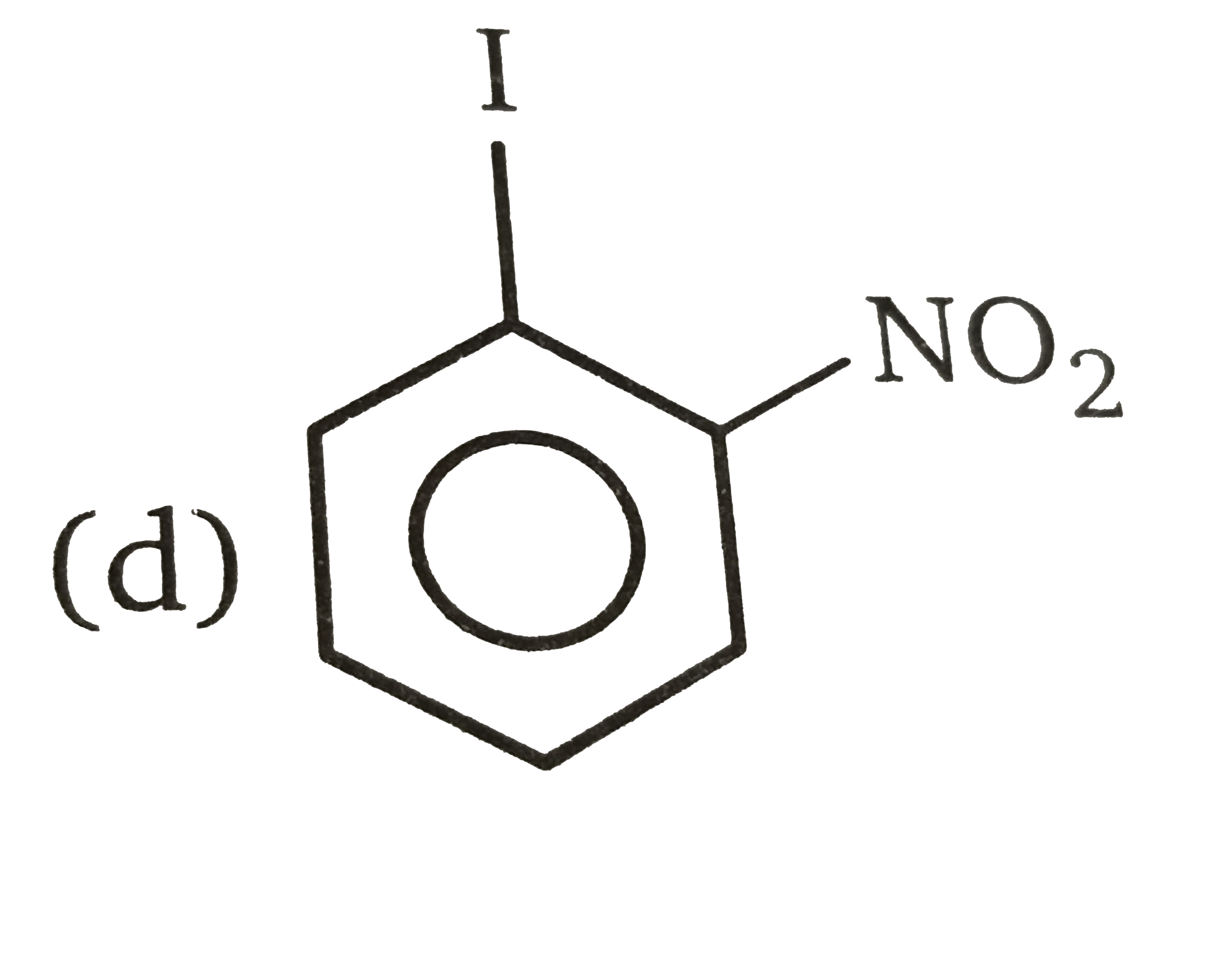
- Question 2 - Select One
Most reactive towards SN-Ar (Nucleophilic Aromatic Substitution)
A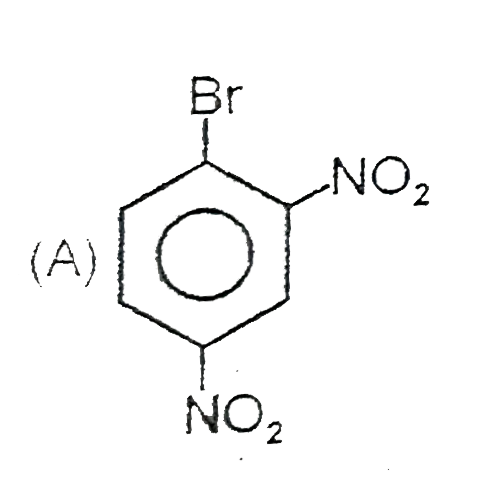 B
B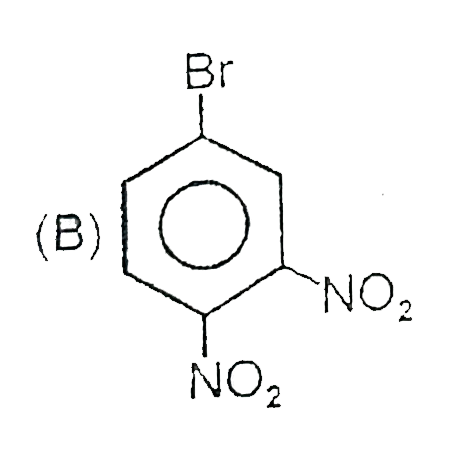 C
C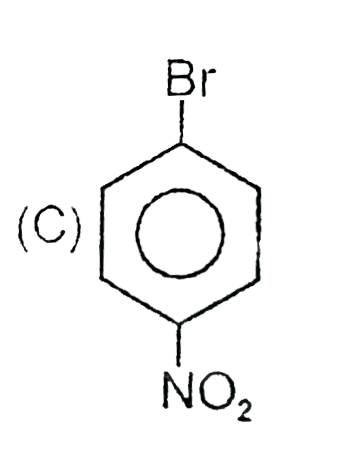 D
D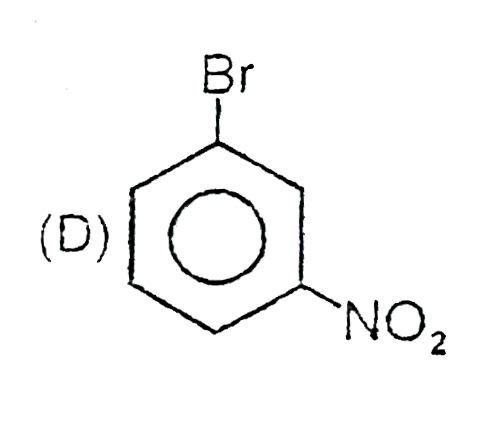
- Question 3 - Select One
Which of the following is the most reactive towards eklectrophilic aromatic substitution?
A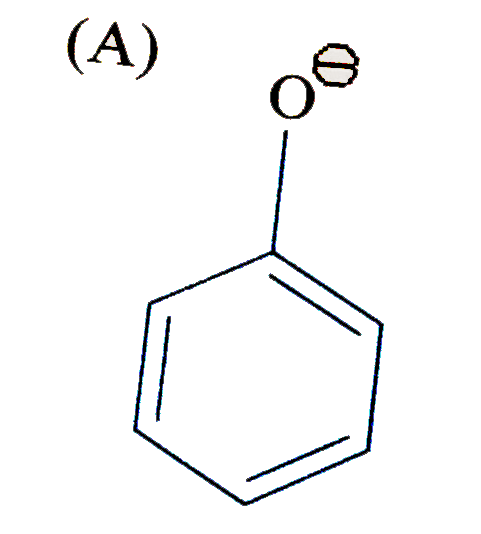 B
B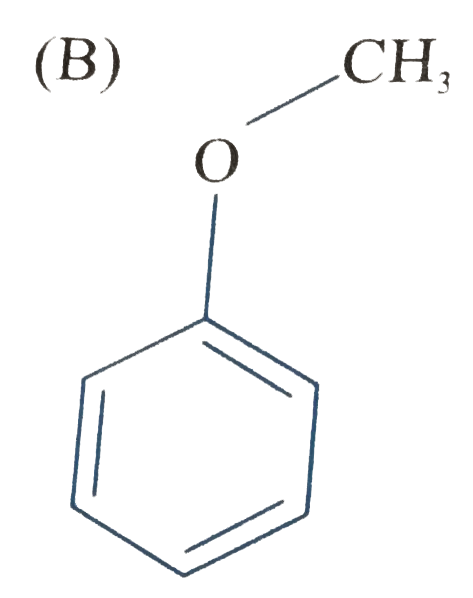 C
C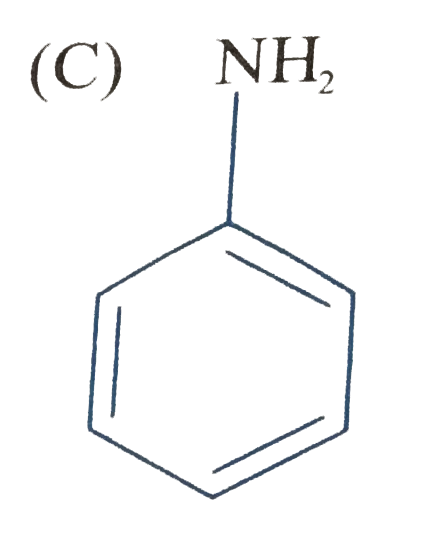 D
D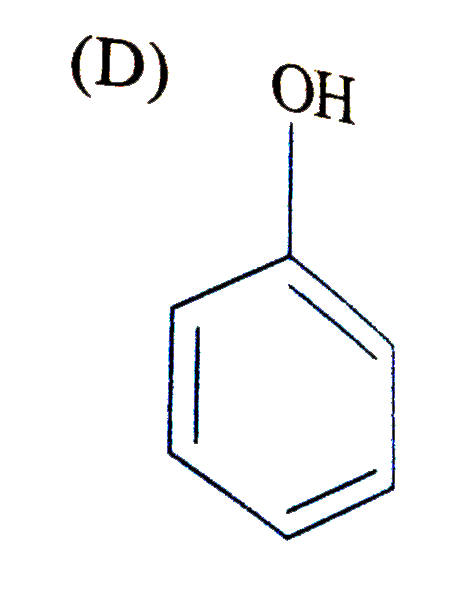
Which of the following is most reactive towards electrophillic aromatic substitution for halogen ?
View SolutionWhich of the following compound is most reactive in the nucleophilic aromatic substitution reaction with NaOH ?
View SolutionWhich is least reactive towards nucleophilic substitution (SN2)
View SolutionWhich is least reactive towards nucleophilic substitution (SN2)
View SolutionArrange the following in decreasing order of reactivity towards EAS (electrophilic aromatic substitution)
(a) View Solution
View Solution

